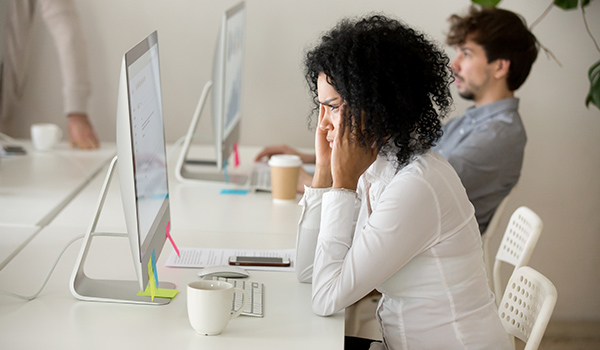
For most people drinking four to six cups of coffee per day is the norm. And of course, we love it because it keeps us alert at work and helps us get the work done. Yet while this is a positive thing, being too “alert” from caffeine can cost you your sleep and in the end affect your health. According to the Centers for Disease Control, 35% of adults in America report not getting enough sleep. Could caffeine affect sleep and keep you from getting enough sleep? In this post, we’ll talk about how caffeine affects your sleep.
What can you do if you find out you have a caffeine dependency and how can you improve your sleep patterns, even if you are not ready to quit caffeinated drinks.
How caffeine affects sleep
Caffeine is a stimulant. Caffeine has no known nutritional value and doesn’t pose a health risk if it is taken in moderate doses. Every 8 oz cup of coffee contains about 95 grams of caffeine. An 8oz cup of brewed black tea contains around 30 grams of caffeine.
Once you consume a cup of coffee or tea, the caffeine is absorbed from your intestines and into your bloodstream. After it enters your bloodstream, this is where it begins to interact with your central nervous system to cause the well-known effects of caffeine.
It takes just about 15 minutes for caffeine to be absorbed into your bloodstream. And it can stay in your bloodstream for up to 10 hours after your first caffeinated drink.
Because it can take up to 10 hours for caffeine to leave your system, a cup of coffee in the morning and even up to 6 hours before your bedtime should not affect your sleep. Drinking coffee two hours before you try to go to bed, on the other hand, can have an adverse effect on your sleep.
How to know you have caffeine dependence
While caffeine is not addictive in the strictest sense of addiction, your body can come to depend on it heavily. Signs of caffeine dependence include:
- If you’ve ever tried to quit caffeine but found it difficult to do so, you may have caffeine dependence.
- If you find that you absolutely cannot function and “need to have” coffee before you can do anything, you may have caffeine dependence.
- A common symptom of caffeine dependence which has been reported by several research studies is headaches.
- Tiredness/fatigue
- Depressed mood
- An overall “bad mood”
- Difficulty concentration on tasks
- Irritability
- Decreased alertness
If you experience these symptoms when you have tried to stop drinking coffee or when a caffeinated drink is not available to you, it’s likely you have caffeine dependence. These make quitting caffeine hard and if it is already affecting your sleep, it will not help matters get better.
How to improve your sleep even if you drink a lot of coffee
So what can you do if caffeine is interrupting your sleep pattern but quitting caffeine is not on your radar? Here are a few suggestions on what you can do.
- If you drink 4 cups of coffee in the morning, consider replacing one of those cups with a beverage that is not caffeinated.
- If you’re trying to improve your sleep, avoid drinking coffee (and other caffeinated drinks) at least six hours before you go to bed.
- Exercise is a natural stimulant. You can use it to replace some of the cups of coffee you drink in a day. Regular exercise is also likely to tire your body out so you can fall asleep faster and stay asleep longer.
Caffeine affects different people in different ways. There are people who even claim that drinking coffee a few hours before bed doesn’t affect their sleep. Understanding how it affects you as an individual will give you insight on what you can do so that you’re not cheated out of your much-needed sleep.

